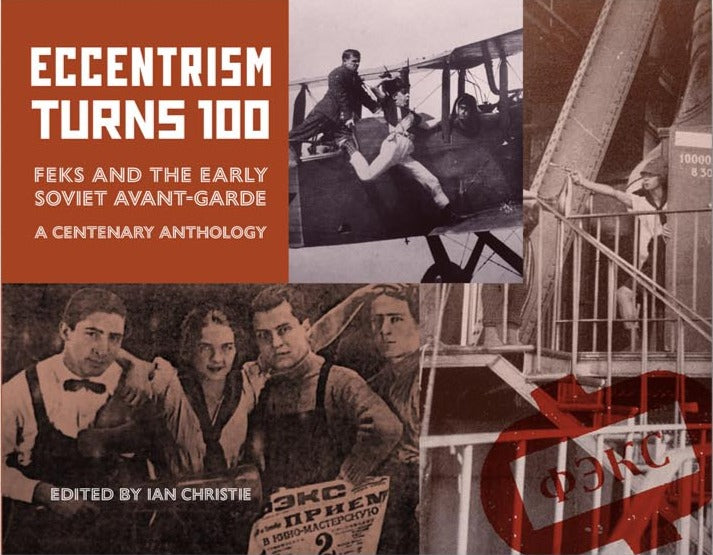Eccentrism Turns 100: FEKS and the Early Soviet Avant-Garde. A Centenary Anthology edited by Ian Christie
The revolutionary Soviet cinema of Sergei Eisenstein, Dziga Vertor, Vseveled Pudovkin and Lev Kuleshov inspired young filmmakers and audiences around the world, at the same time as it terrified censors. Most of it came from Moscow, the new capital of Soviet Russia after the revolutions of 1917. But in the former imperial capital - 'then not yet Leningrad, pored between the present and the future', according to the critic Viktor Shklovsky - 'the way was also open for experimentation'.
Leading that revolt against tradition were the youngsters who launched "Eccentrism" in 1921. Leonid Trauberg and Grigori Korintsev, 20 and 17 respectively, had both recently arrived from Ukraine. Within months they had distributed their 'Factory of the Eccentric Actor' (FEKS) manifesto, recruited a troupe of extraordinary performers, and presented their first riotous stage shows. The poster for The Wedding, which owed little to Gogol, promised 'operetta, melodrama, farce, film, circus, variety, Charlie Chaplin and the lovely Betty'. Their motte was borrowed from Mark Twain - 'Better to be a young pup than an old bird of paradise.
Eisenstein nearly joined them but decided to return to Moscow. Within two years both had made their film debut, Eisenstein with The Strike and FEKS with The Adventures of Oktyabrina, both revealing their love of American serials, Sherlock Holmes and Fantomas, FEKS' earliest surviving film, The Devil's Wheel, was a hit among young people, with its story of a sailor from the cruiser Aurora who deserts to spend the night with a girl he's met in the funfair, amid an assortment of Petrograd's hustlers and lowlife. Today it feels closer to the French New Wave than to most early Soviet films.
This centenary celebration features the first complete translation of the FEKS manifesto, alongside a facsimile of its original 'eccentric typography, with a portfolio of stills from Oktyabrina, original polemics, and later reminiscences by the founders.
Paperback
Couldn't load pickup availability
Share

You Also Viewed

Eccentrism Turns 100: FEKS and the Ea...
